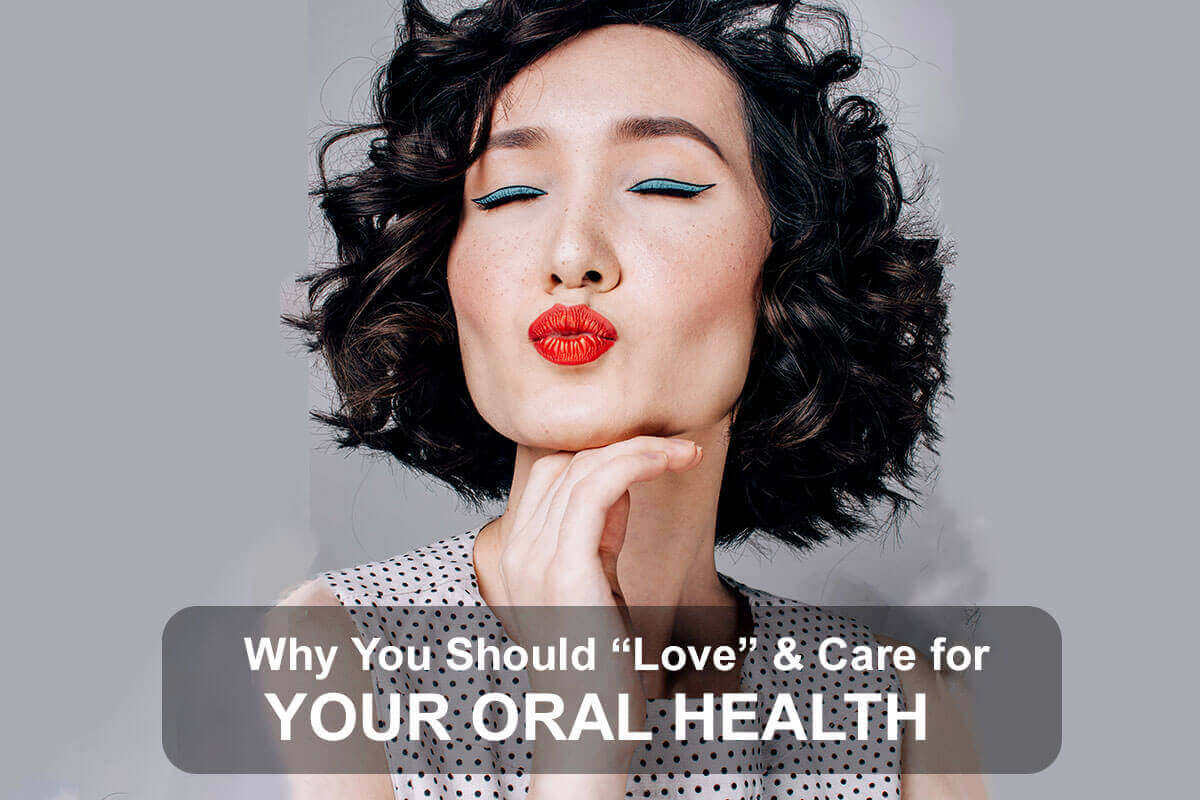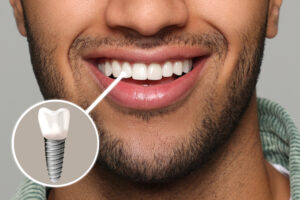Do you Know How Much Your Oral Wellness Matters?
Researchers are also discovering new reasons to protect your oral health.
Have you ever thought that going to see your dentist was just about teeth? If that is your impression you will be very surprised to find how times and dental medicine have changed. Trends in modern dentistry keep evolving along with new discoveries in medicine. Dentistry isn’t just about teeth and gums. It seems that more and more connections between oral health and overall health are discovered every day. You may be wondering how that is possible. This article will help answer some of your questions.
If you have been to the dentist recently you probably notice that when the doctor comes in for the exam they aren’t just looking to see if there are cavities to take care of. They look over your whole mouth and perform a visual check for signs of oral cancer. You may also hear them asking your hygienist about the condition of your gums. “Just what do my gums have to do with teeth and cavities?” you may ask yourself. Actually, the health of your gums is where the whole discussion starts with oral health and over-all health being interconnected.
Gum Disease is too Good at Hiding Out
Why should “love” great oral health? Because it protects your entire being!
If not properly cared for your gums can become diseased. What’s worse is that gum disease is typically insidious. That means it is tough for you to realize you have it because you can’t see it or feel it. Your hygienist and dentist know when it is present because they can see and diagnose from the evidence that it is present.
Some gum disease indicators that dentists and hygienists look for:
- Bleeding gums
- Pockets between teeth and gums
- Persistent bad breath.
I will speak more about this a little later but first, why is it important to take care of periodontal disease.
What does Periodontal Disease have to do with your Overall Health?
An analogy to illustrate the importance would be a simple cut you may get on a knee or leg. Have you ever noticed that when you get a small cut that it will be red around the edges? This redness is a sign of an infection that has entered the body at the site of the cut. Your body is in the process of fighting the infection creating the red color. If you do not keep that wound clean it may get puffy in addition to being red. This is a sign that the infection is getting more severe and the puffiness is puss that is accumulating at the site.
You need to take action now to control the infection, as the next step is that the infection is not contained and starts to spread to the rest of your body. Further action needed may include a trip to the doctor or hospital since the body can no longer fight the infection on its own.
Your gums are no different. When your hygienist and dentist check your gums they are trying to see if they are pink and firm (healthy) or red, puffy and possibly bleeding (diseased). They will also look to see if your gums are pulling away from your teeth; this creates pockets between your teeth and gums.
Your dentist and hygienist know that puffy, bleeding gums that have pockets between the teeth are showing all the indicators that periodontal disease is present and needs to be addressed. Same as the cut on your leg, if not taken care of the periodontal disease will only get worse and have more severe consequences. When I spoke above about gum disease being insidious it is because you can’t see it as clearly as the cut on your leg. Also, periodontal disease typically does not hurt, and because it probably doesn’t hurt you may not think twice about dealing with it. It may not be until your hygienist and dentist start to discuss periodontal disease with you and show you what they are seeing that you take action.
You may wonder that if this is like a cut on your leg, won’t a bandage and/or simple antiseptic fix the problem? If addressed early on, periodontal disease may be taken care of on your own through proper home care (the bandage) and an over-the-counter product like Listerine (the antiseptic).
How Periodontal Disease Hurts Your Overall Health if Unaddressed
If the periodontal disease is not addressed, similar to a cut on your leg you may need to get professional help to contain the infection. The more severe that your periodontal disease is the more professional help you will need. You need professional help when the pockets between your teeth and gums have gotten deep enough that the periodontal disease cannot be treated with home care or over-the-counter products. Your dentist can tell you if they feel your periodontal disease can be addressed with home care or you need professional help.
If left untreated, periodontal disease can affect many parts of your body. The first being your mouth. Periodontal disease resides in the gums and left unchecked starts to actually destroy your jaw bone. Since this bone is what holds your teeth in place, over time the teeth will become loose and can eventually be lost. To treat periodontal disease your hygienist or periodontist (if needed) will clean and scale below your gumline. We can help you avoid unnecessary reconstructive dentistry by protecting your gum’s health.
This “deep” periodontal cleaning gets at the bacteria present and destroys the attachments the bacteria has made with the teeth. The destruction of the attachments prevents bacteria from destroying more of your jaw bone. You will normally follow this regime with your hygienist or periodontist every 3-4 months. This time frame is set because it typically takes 3-4 months for bacteria to form new attachments, and restart the destructive process.
The goal over time is that the pockets between the teeth and gums reduce in size through professional care. If that happens your hygienist may recommend less frequent visits and normal cleanings vs. the deep cleaning and scaling that periodontal care provides. Follow up care will be personalized to meet your needs; whatever number of visits you need, rest assured, it will be gentle dental care.
This would be great news for you as you would now have your periodontal disease under control!
Relationship Between an Unhealthy Mouth and your Body
We have discussed the link between how an unhealthy mouth can impact your dental health, and that makes sense for most people. But now let’s talk a little more how an unhealthy mouth can impact the rest of the body. Infections tend to be very opportunistic. They will enter a body through a wound, then attack a weaker part of the body. These are some of the links between an unhealthy mouth and the rest of the body as stated in an article written by Mayo Clinic.
- Endocarditis. This infection of the inner lining of your heart chambers or valves (endocardium) typically occurs when bacteria or other germs from another part of your body, such as your mouth, spread through your bloodstream and attach to certain areas in your heart.
- Cardiovascular disease. Although the connection is not fully understood, some research suggests that heart disease, clogged arteries, and stroke might be linked to the inflammation and infections that oral bacteria can cause.
- Pregnancy and birth complications. Periodontitis has been linked to premature birth and low birth weight.
- Pneumonia. Certain bacteria in your mouth can be pulled into your lungs, causing pneumonia and other respiratory diseases. Also included in the Mayo Clinic article was the fact that an unhealthy mouth can adversely affect the rest of your body. Oral health: A window to your overall health talks about how there are conditions in the body that can also, in turn, negatively impact your oral health.
- Diabetes. By reducing the body’s resistance to infection, diabetes puts your gums at risk. Gum disease appears to be more frequent and severe among people who have diabetes. Research shows that people who have gum disease have a harder time controlling their blood sugar levels. Regular periodontal care can improve diabetes control.
- HIV/AIDS. Oral problems, such as painful mucosal lesions, are common in people who have HIV/AIDS.
- Osteoporosis. This bone-weakening disease is linked with periodontal bone loss and tooth loss. Certain drugs used to treat osteoporosis carry a small risk of damage to the bones of the jaw.
- Alzheimer’s disease. Worsening oral health is seen as Alzheimer’s disease progresses.
Other conditions that might be linked to oral health include eating disorders, rheumatoid arthritis, certain cancers and an immune system disorder that causes dry mouth (Sjogren’s syndrome).
What does Alzheimer’s Disease have to do with Oral Health?
The article on Alzheimer’s disease is eye-opening and a relatively new association to oral health. I looked for a little more detail and found this Jan 28, 2019 article titled Periodontal Disease Bacteria Linked to Alzheimer’s Disease on Perio.org. It’s a website maintained by the American Academy of Periodontology. In the article they explained:
“The journal Science Advances, uncovered a potential link between P. gingivalis, the bacteria associated with periodontal disease (commonly known as gum disease) and Alzheimer’s. Researchers analyzed brain tissue, spinal fluid, and saliva from Alzheimer’s patients—both living and deceased—and found evidence of P. gingivalis. Gingipains, the toxic enzyme secreted by P. gingivalis, were found in 96 percent of the 53 brain tissue samples examined, with higher levels detected in those with the pathology and symptoms of Alzheimer’s disease.” – Mame Kwayie, American Academy of Periodontology
Benefits of Excellent Oral Health Extend to your Whole Body
It seems that the more that research is done, the more there is discovered that associates a healthy mouth to a healthy body. There is actually a discipline, stomatology, that deals with diseases of the mouth. A hygienist I recently interviewed described how, surprisingly, much more advanced other countries are in their studies of diseases of the mouth compared to the United States.
The moral of the story is to take care of your mouth. Your oral health can impact more than just your mouth. See your dentists regularly and if your dentist presents you with a diagnosis of periodontal disease take is seriously and work closely with your provider. Gain control of possible disease before it turns into something more serious and impacts your overall health. Preventative dentistry is your friend.
Call Smile Design Dentistry and schedule your next dental appointment today! 763-537-1238
 Brian Denn is the Clinic Manager at Smile Design Dentistry in Plymouth, Minnesota. Brian has over 25 years of dental practice management involving making practices run smoother and patient experiences better. He also leads a dental practice managers group staying abreast of the latest dental practice management trends.
Brian Denn is the Clinic Manager at Smile Design Dentistry in Plymouth, Minnesota. Brian has over 25 years of dental practice management involving making practices run smoother and patient experiences better. He also leads a dental practice managers group staying abreast of the latest dental practice management trends.




